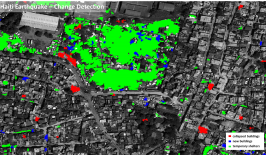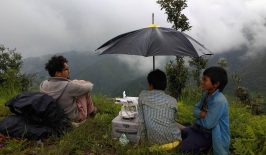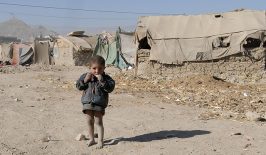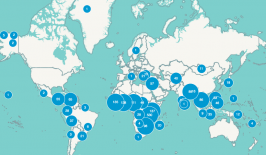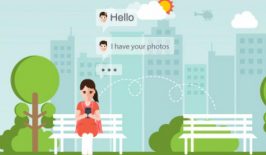According to Article 19 of the 1948 Universal Declaration of Human Rights, everyone has “the right to freedom of opinion and expression; this right includes freedom to hold opinions without interference and to seek, receive and impart information and ideas through any media and regardless of frontiers”.
Despite Article 19 broadly prohibiting government censorship, in some countries, there are still major restrictions on access to information – access to information on certain topics (such as abortion, for example) is limited, messaging services are blocked and spaces were critical views are expressed are monitored and subject to scrutiny. In some of these countries, people who engage in conversations deemed critical to the government face persecution and punishment.
There are already various methods and systems that allow users to surf the internet as anonymously as possible (for example, using the Tor network) and even access censored media and websites (using services such as Psiphon or a VPN). Nevertheless, it is still difficult to escape surveillance in autocratic or dictatorial regimes that want to keep their population in check as closely as possible.
The map above shows the gaps in free access to the internet. The blue regions suggest “free access”, yellow regions are “partially censored”, while red and black areas are “monitored” and “censored” respectively. Grey states are those whose full status is not yet known.
In order to document the cases in which internet censorship takes place, in 2011 the international six-member team of the Open Observatory of Network Interference (OONI) began developing a software that would make internet censorship public. This data can then be used to put pressure on governments that deny their citizens freedom of expression. Since April 21st this year, the OONI software is no longer only available as an Android app, but also as a desktop app for Windows and Mac OS.
Detecting Surveillance, Interference and Internet Censorship
Arturo Filastò is one of the co-founders of the OONI network. Previously, he was involved in the development of the Tor project, where he worked on making the program more resistant to internet censorship. “As part of a community interested in technology and internet censorship, I wanted to understand the technical dimension behind the various forms of internet censorship worldwide,” Filastò told RESET. At that time, there were already many projects measuring and tackling internet censorship, such as the Open Net Initiative. However, none of those projects was freely accessible, free of charge and completely transparent with its measurement methods.
“Due to the lack of transparency about tools, methods and data, it was impossible to independently verify cases of internet censorship,” Maria Xynou, head of public relations at OONI, told RESET. These failures led OONI to found its own project in 2011 and develop a free software which openly documents the methods they use to collect their data. The software has been in use since 2012.
Specifically, the OONI software is used to check whether individual websites or access to messaging services such as WhatsApp, Facebook Messenger or Telegram are blocked in certain countries. The software also detects so-called middleboxes, a computer network device which can be installed by governments to control internet traffic, while they are also responsible for the speed and performance of the network. With the help of volunteers who have installed the software on their devices, data is collected that can serve as evidence of internet censorship by showing how, when, where and by whom these forms of control and interference are being implemented.
Working Together with Human Rights Organisations Worldwide
All of the data collected via the users is analysed and published on the OONI platform. The more people who take part in the campaign, the larger and more detailed the archive is, and the more useful it is to human rights activists who want to take action against internet censorship. Since internet censorship can vary from network to network (even within individual countries), Xynou says it is necessary to measure as many networks as possible in order to be able to detect cases of internet censorship around the world.
Since 2016, an OONI partnership program has been in place with a total of 27 local human rights organisations from South America, South and Southeast Asia, Africa, the Middle Eastern and Eastern Europe. Among them are NGOs as well as hackerspaces, legal associations, media organisations and research groups. “These partnerships enable the daily and continuous collection of network measurements, especially during political events – such as elections and demonstrations – and support the policy and legal efforts of local partner organisations,” Xynou said. In addition to this, OONI is an active member of Access Now’s #KeepItOn campaign, a global coalition of human rights organisations working for an open internet.
For example, the 2018 data from the OONI network served as evidence for a petition filed in the Supreme Court of Islamabad, the capital of Pakistan. This concerned the blocking of various media websites and social media platforms during the protests in 2017 against the then Minister of Law and Justice Zahid Hamid. In most cases, including the case from Pakistan, it is very difficult to assert oneself against regimes that practice internet censorship. Therefore, according to the makers of the network, the main task is to first “initiate a public debate on internet censorship” and in general “to promote social justice on the internet”.
It’s free to install the software on your computer or smartphone. The largest part of the project costs are financed by donations. The Open Technology Fund (OTF) has been one of the main supporters of the project since its inception. OTF has supported programs such as Tor and Signal, both of which are also projects that promote privacy and human rights on the internet. The Mozilla Open Source Support is another of the OONI software’s main supporters.
How Safe is the OONI Software for its Users?
“As far as we know, no one using OONI software has suffered any consequences so far,” Xynou told RESET. “However, we are very aware of the possible risks. These vary depending on factors such as the country in which users are located, the network from which they use the OONI software and the websites they test.” In order to protect the users, the project’s website provides detailed information on potential risks associated with the use of the software. Users are also offered various options to flexibly deactivate data collection or to manually determine the collection and publication of data.
A paper published in 2011 on the motivation behind the project states that: “Observation is a fundamental requirement for the advancement of knowledge and OONI aims to en-sure that the tools to make such observations are freelyavailable to all. With the belief that unfettered access toinformation is an intrinsic human right, OONI seeks toobserve levels of surveillance, censorship, and networkdiscrimination in order for people worldwide to have aclearer understanding of the ways in which their accessto information and speech is monitored, censored or oth-erwise filtered.”
In April of this year alone, the website collected data from nearly seven million network measurements in more than 200 countries and over 6,000 networks, according to the website. According to the makers of the software, several hundred thousand people have already installed the OONI software, which is currently available in English, Chinese, Russian, Spanish, French, Turkish, Thai, Italian, Greek, Catalan, Slovak, Portuguese and German.
This is a translation by Mark Newton of an original article which first appeared on RESET’s German-language site.



